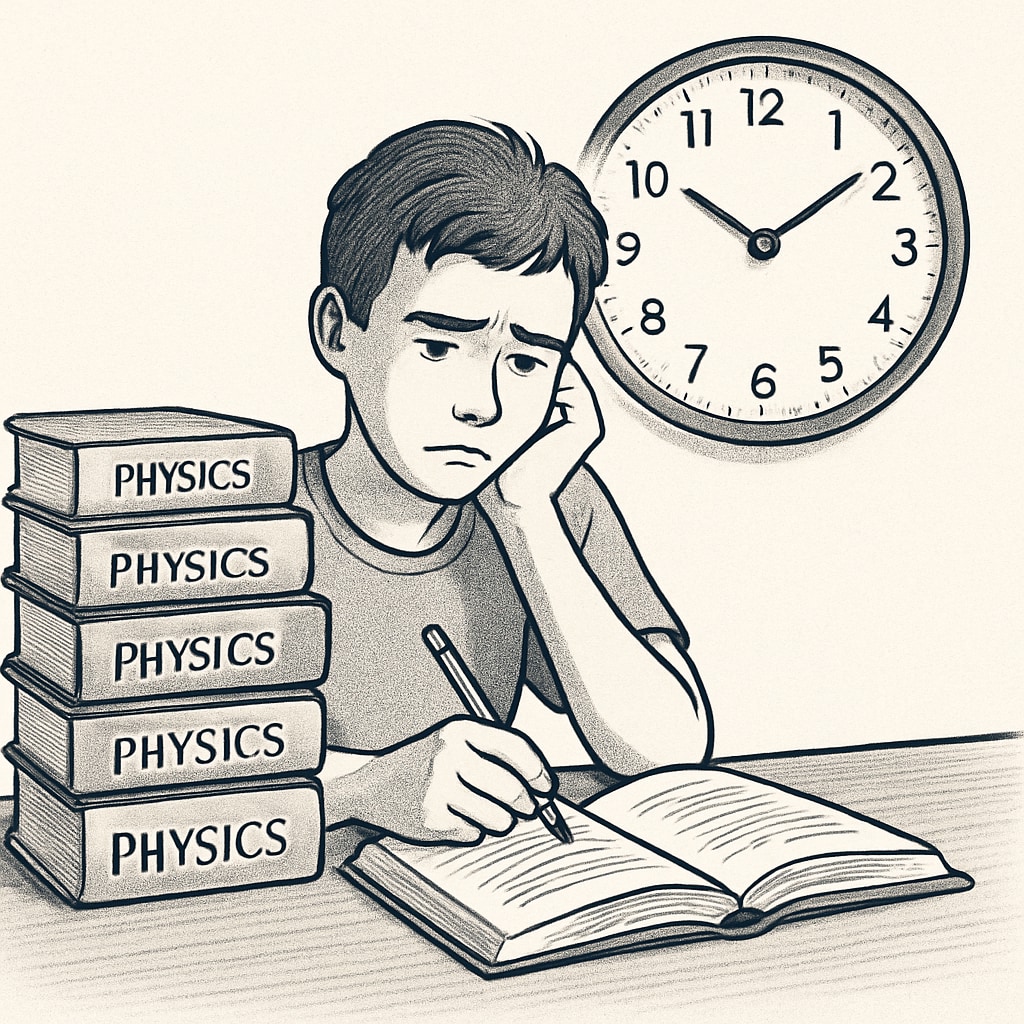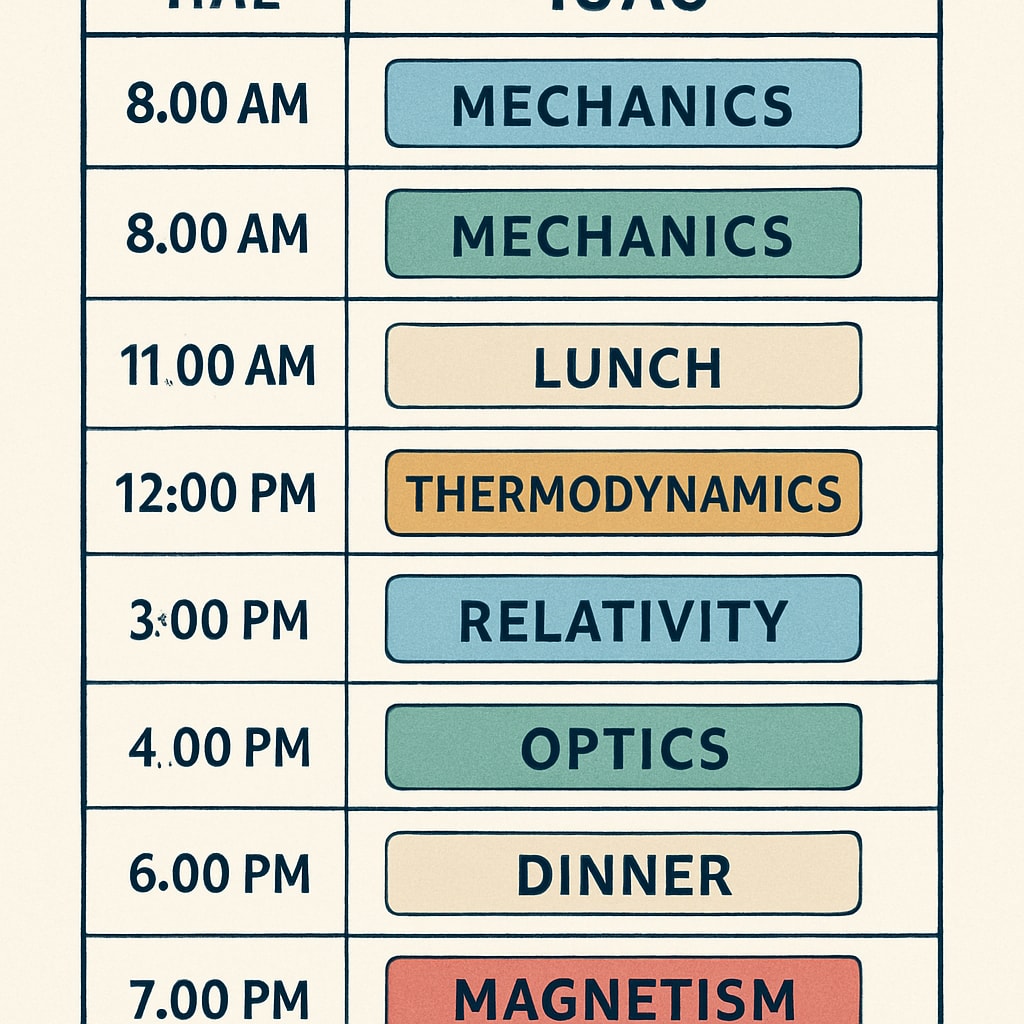Clearing BSc Physics backlogs under tight deadlines can be a daunting challenge, especially when the final attempt is on the horizon. Many students struggle to balance complex physics concepts, practical applications, and the pressure of time management. However, with a systematic approach that combines time management, conceptual understanding, and consistent practice, success is achievable. This article dives into actionable strategies to help students overcome their physics backlogs and build a strong foundation for future academic pursuits.
Understanding the Root Causes of Physics Backlogs
Before addressing the issue, it’s essential to understand why backlogs occur. Physics, with its blend of theoretical concepts and mathematical applications, often overwhelms students. Common reasons include:
- Weak foundational knowledge in prerequisite topics like mathematics or mechanics.
- Procrastination or ineffective study habits.
- Inability to grasp abstract concepts due to insufficient visualization tools or techniques.
- Over-reliance on rote learning rather than conceptual understanding.
Identifying these root causes allows students to tailor their approach and rebuild their confidence step by step.

Time Management: The Key to Clearing BSc Physics Backlogs
Effective time management is crucial when facing multiple backlogs. Here are some practical strategies:
- Prioritize Your Topics: Begin with high-weightage or frequently tested topics. Use past exam papers to identify patterns.
- Create a Realistic Schedule: Dedicate specific blocks of time to each topic and stick to your plan. Avoid overloading yourself.
- Use the Pomodoro Technique: Study in focused 25-minute intervals followed by 5-minute breaks to maintain productivity.
- Avoid Multitasking: Focus on one concept at a time to ensure deeper understanding and retention.
By adhering to a structured schedule, students can maximize efficiency and reduce the feeling of being overwhelmed.

Mastering Conceptual Understanding to Overcome Backlogs
Physics demands more than memorization; it requires a thorough grasp of underlying principles. To strengthen conceptual understanding:
- Break Down Complex Concepts: Divide challenging topics into smaller, manageable parts. For example, when studying electromagnetism, focus separately on electric fields, magnetic fields, and their interactions.
- Leverage Visual Aids: Use diagrams, animations, and simulations to visualize abstract ideas. Resources like Khan Academy provide interactive tools and videos.
- Connect Theory with Application: Practice solving real-world problems to see how theoretical concepts translate into practical scenarios.
- Engage in Peer Discussions: Explaining concepts to friends or joining study groups can reinforce understanding.
Investing time in truly understanding the subject allows students to tackle any physics problem with confidence.
Practicing Effectively: Turning Weaknesses into Strengths
Practice is the backbone of mastering physics. To make the most of your practice sessions:
- Start with Basics: Revisit fundamental concepts to ensure a solid foundation before progressing to advanced topics.
- Focus on Problem-Solving: Use textbooks, online resources, and previous exams to practice a variety of questions.
- Analyze Mistakes: Review incorrect answers to identify patterns and gaps in knowledge. This prevents repeating the same errors.
- Simulate Exam Conditions: Practice under timed conditions to improve speed and accuracy.
Consistent practice not only improves problem-solving skills but also builds the mental resilience needed for exams.
Preparing for Your Final Attempt: The Last Push
As your final attempt approaches, it’s critical to focus on consolidation rather than cramming. Here’s how:
- Revise Strategically: Concentrate on high-yield topics and key formulas.
- Use Summary Sheets: Create one-page summaries for each topic to streamline revision.
- Stay Healthy: Maintain a balanced diet, get enough sleep, and take short breaks to prevent burnout.
- Seek Help When Needed: Don’t hesitate to ask professors or tutors for clarification on difficult concepts.
With a focused and disciplined approach, students can turn their final attempt into a success story.
In conclusion, overcoming BSc Physics backlogs may seem overwhelming, but with proper time management, a clear understanding of concepts, and consistent practice, students can rise to the challenge. These strategies not only help in clearing backlogs but also lay a strong foundation for further academic and professional success.
Readability guidance: This article uses short paragraphs, bulleted lists, and actionable advice to ensure clarity. Transitions like “however,” “therefore,” and “for example” are strategically placed to maintain flow. Long sentences and passive voice are minimized for readability.


